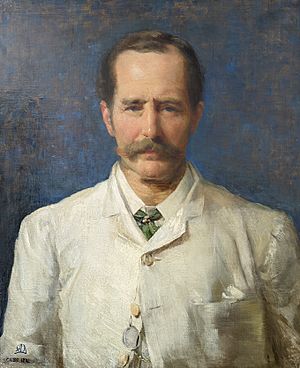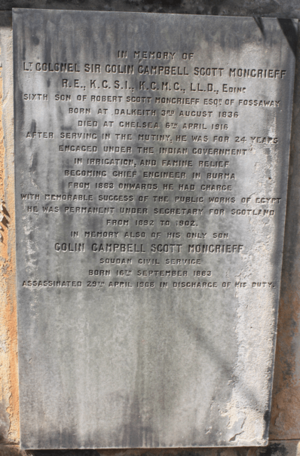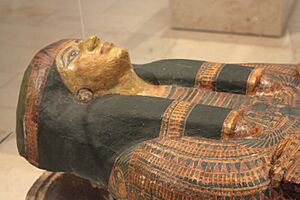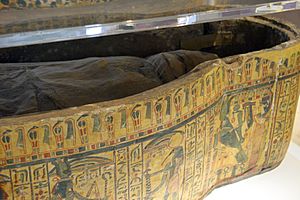Colin Scott-Moncrieff facts for kids
Quick facts for kids
Colonel
Sir Colin Campbell Scott-Moncrieff |
|
|---|---|
 |
|
| Born | 3 August 1836 |
| Died | 6 April 1916 (aged 79) |
| Allegiance | |
| Service/ |
|
| Rank | Colonel |
| Unit | Corps of Royal Engineers |
Colonel Sir Colin Campbell Scott-Moncrieff (born August 3, 1836 – died April 6, 1916) was a British engineer and soldier. He was also a civil servant, which means he worked for the government. He is most famous for fixing the Nile Barrage and improving the way water was managed in Egypt in the 1880s. This helped Egypt become much richer.
Early Life and Work in India

Colin Scott-Moncrieff was born in 1836. He trained at a special school called Addiscombe, which was run by the East India Company. This company had its own army. After his training, he joined the Bengal Engineers, a part of this army. Later, this army became part of the British army.
In 1858, he went to India. He helped with the clean-up after the Indian Rebellion of 1857, a big uprising against British rule. Soon after, he started working on India's water systems. He became the Chief Engineer for the Jumna Canal. From 1869 to 1877, he was the Superintending Engineer for the Ganges Canal. After that, he became the Chief Engineer for Burma until 1883.
For his important work, he received an award called the Companion of the Order of the Star of India in 1878.
Fixing Egypt's Water System
After his work in India, Scott-Moncrieff retired as an honorary Colonel. On his way home, he was asked to go to Cairo, the capital of Egypt. There, he met a powerful British official named Lord Dufferin. Lord Dufferin offered him a very important job: Director of Irrigation for Egypt. At that time, Egypt was officially part of the Ottoman Empire, but the British were really in charge.
His most important task was to fix the Nile Barrage. This was a huge dam built between 1843 and 1862. It was meant to hold back water from the Nile River to water the farms in the Delta region. However, it had cracks and was not working well.
Scott-Moncrieff carefully tested the Barrage by closing its gates a little bit. He watched the cracks very closely. His tests showed that the Barrage could work! Because of the improved water supply, farmers grew much more food. This success allowed him to get a lot of money – one million pounds – to fully repair and strengthen the Barrage. The repairs took place between 1885 and 1890.
Over nine years, he completely changed how Egypt's water system worked. He was so good at it that Egypt, which was once very poor, became a much richer country. For his amazing work in Egypt, he was given another special award, the KCMG.
Later Life and More Work
In 1892, Scott-Moncrieff returned to Britain. He then worked as the Under-Secretary for Scotland from 1892 to 1902. This was a high-ranking government job.
From 1901 to 1903, he was asked by Lord Curzon, who was in charge of India, to lead a group. This group's job was to study and suggest ways to improve India's water system even more. For this important work, he received an even higher award: Knight Commander of the Order of the Star of India (KCSI). This award was given during a special event called the 1903 Durbar Honours.
 | Victor J. Glover |
 | Yvonne Cagle |
 | Jeanette Epps |
 | Bernard A. Harris Jr. |



